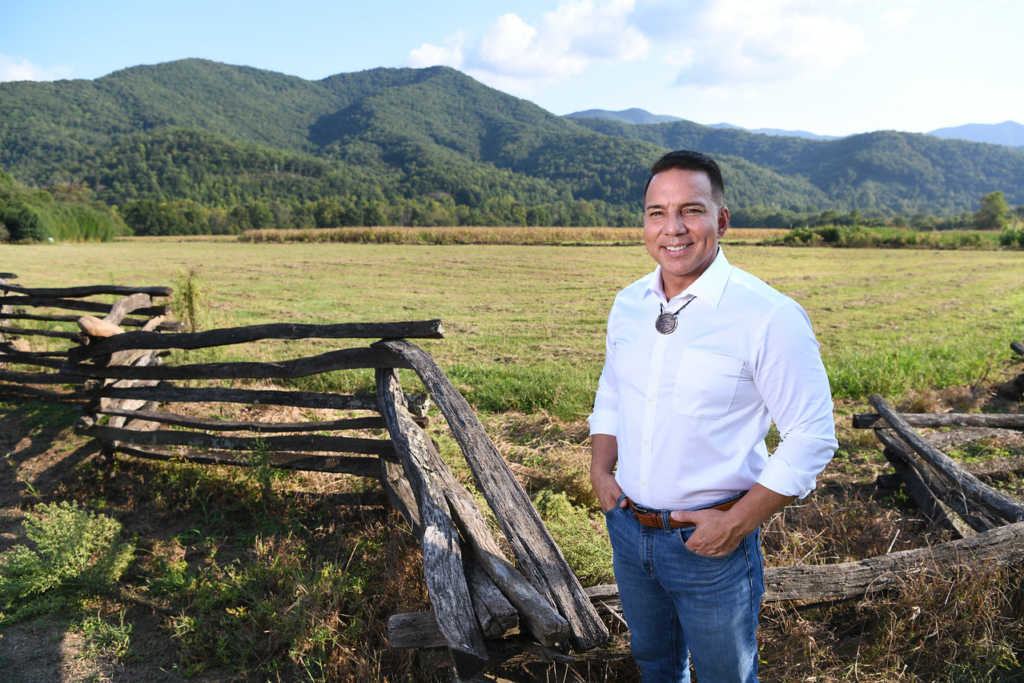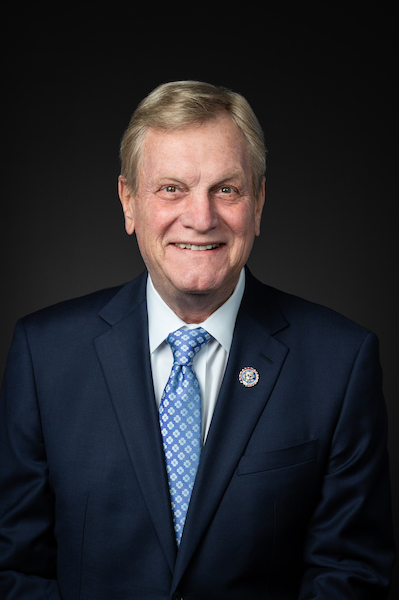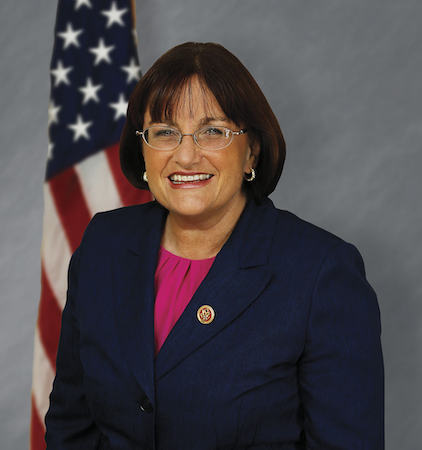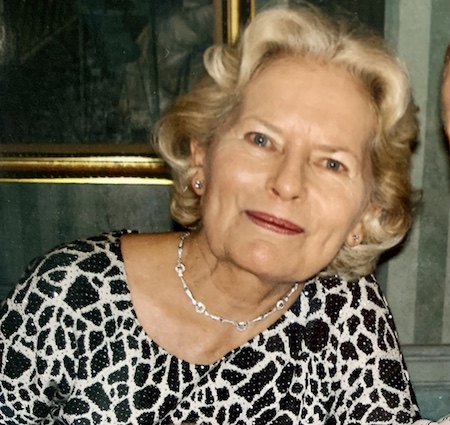2024 River Champion Award
The 2024 River Champion Awards spotlight the power of Indigenous leadership, grassroots advocacy, and collaboration. Rivers and waters across the country face many challenges. We must carry forward the lessons from the Klamath, and the examples set by these leaders, to protect and restore rivers nationwide.
American Rivers is honored to celebrate the following River Champions:
Yurok Tribe
On the coast, the Yurok Tribe’s ancestral territory stretches from the Little River in Humboldt County to Damnation Creek in Del Norte County. The tribe’s territory extends for 44 miles up the Klamath River to its confluence with the Trinity River. The Klamath and Trinity rivers are the lifeline of Yurok people, as the rivers provide the majority of the food supply including ney-puy (salmon), Kaa-ka (sturgeon), and kwor-ror (candlefish). Today, the tribe is the largest in California with more than 6,400 enrolled members. The Yurok Tribe was a signatory to the Amended Klamath Hydroelectric Settlement Agreement, which ultimately led to dam removal. The Yurok Tribe has played a pivotal role in every single aspect of Klamath River Dam Removal and restoration efforts.
The Yurok Fisheries Department and Yurok Tribe Construction Corporation are all at the forefront of these projects. The Yurok Fisheries Department collected a substantial volume of the approximately 20 billion native seeds that will be used to restore the 2,000-acre reservoir reach in between the four dams. Yurok Fisheries crews, RES and many project partners are now hand-sowing the seeds throughout the empty reservoirs. The Yurok Tribe is working on large-scale river restoration projects in other parts of California too. Informed by Traditional Ecological Knowledge and western science, the Yurok Fisheries Department and Yurok Tribe Construction Corporation transform severely degraded aquatic ecosystems into highly productive habitat for salmon as well as many other native fish and wildlife species. The Yurok Tribe has completed numerous projects on the Klamath and Sacramento Rivers and many smaller streams.
Karuk tribe
The Karuk Tribe lives in its ancestral homelands along the middle part of the Klamath River, between Weitchpec and Seiad, California. The Karuk Tribe was a signatory to the Klamath Hydroelectric Settlement Agreement, which ultimately led to dam removal.
As Karuk Tribal Chairman Russell “Buster” Attebery stated in a video shared by KRRC, “Having the dams come out and having the almost 400 miles of salmon spawning grounds, and better water quality, is going to be imperative to life along the Klamath River. I was born and raised along the Klamath River and the fish, the river, and the clean water provides a perfect way of life. We are looking forward to the opportunity to have clean water again, and spawning grounds so our children can again experience the opportunities to fish and provide a food source for their families. It will be a great benefit to everyone who lives along the Klamath River.
Klamath Justice Coalition
The Klamath Justice Coalition was founded by grassroots Indigenous leaders more than two decades ago. They created what is now known as the “Un-dam the Klamath Campaign”. The refrain “Undam the Klamath, bring the salmon home” was heard from fishing boats on the river all the way to Berkshire Hathaway’s shareholder meeting in Omaha, Nebraska. As one of the co-founders Molli Myers (Karuk) states, “this was a movement of the people”.
Berkshire Hathaway
Berkshire Hathaway is the parent company of PacifiCorp, which owned and operated the four Klamath River dams. In 2020, Berkshire Hathaway played a pivotal role in securing the final dam removal accord: the company agreed to transfer operating licenses of the dams to the states of Oregon and California, and the Klamath River Renewal Corporation. Berkshire also agreed to share the burden of any cost overruns.
Ridges to Riffles Indigenous Conservation Group
Ridges to Riffles is advancing Indigenous-led restoration efforts on the Klamath and other rivers. R2R works in partnership with Indigenous Peoples to advance their cultural and natural resource interests through legal and policy advocacy. In partnership with the Yurok Tribe, R2R is working on Klamath dam removal, habitat restoration, instream flows, and personhood rights for the Klamath River.
Klamath River Renewal Corporation
The Klamath River Renewal Corporation (KRRC) is a nonprofit organization formed by signatories of the amended Klamath Hydroelectric Settlement Agreement, to take ownership and oversee removal of the four hydroelectric dams on the river. Managing the biggest dam removal and river restoration project in history is no small feat. KRRC’s team has prioritized safety, community engagement, and helping the people of the basin take steps toward a shared, sustainable future.
States of Oregon and California
Bipartisan support was key to success on the Klamath: elected leaders from both parties saw the value of a restored Klamath River, with California Governor Schwarzenegger and Oregon Governor Kulongoski signing the original agreement to remove the dams in 2010. A decade later, California Governor Newsom and Oregon Governor Brown took a vital step, joining the Klamath River Renewal Corporation as a co-licensee, allowing PacifiCorp to relinquish the operating license for the dams. California Proposition 1 water bond funds combined with PacifiCorp ratepayer funds to make the project possible. Never before has a state contributed this much funding to a dam removal project.

2023 Champions
Eastern Band of Cherokee Indians

The Eastern Band of Cherokee Indians is a federally recognized tribe located in western North Carolina on their ancestral homeland. Today, the Eastern Band of Cherokee Indians lead a robust coalition to remove the Ela Dam to repair 549 miles of stream and restore cultural connections to the Oconaluftee River, or Long Man. The Cherokees have always viewed the Oconaluftee River as “Long Man (Ga-na-hi-da A-sga-ya),” whose head lies in the mountains and whose feet lie in the sea. Long Man is a sacred figure who provides water to drink, cleanliness, food, and numerous cultural rituals tied to traditional and cultural ceremonies still being practiced today. Starting in 2021, the Honoring Long Man event – part river clean up and part cultural reawakening – reconnected people to the Oconaluftee River and what it means to take care of the water.
The Ela dam disconnects Long Man from the rest of the larger watershed and has since 1925 — almost 100 years. Because of this one dam, the entire Qualla Boundary and parts of Great Smoky Mountain National Park are entirely blocked off from their historic drainage. Migratory fish species, such as Sicklefin Redhorse, that once spawned in the upper Oconaluftee River and its tributaries were an important fishery and food resource for the Cherokee prior to the construction of Ela Dam.
Each year, thousands of redhorse fish reach the dam but are blocked from continuing their journey to historic spawning streams. Removal of Ela Dam will be a giant step towards restoring this once vital and thriving fishery of the Cherokee. The Eastern Band of Cherokee Indians’ advocacy underscores the importance of greater engagement and leadership by Tribal Nations in river conservation efforts across the country.
Representative Mike Simpson (ID-2)

Mike Simpson is a U.S. Congressman who has represented Idaho’s second district, which covers most of the eastern half of Idaho, since 1999. Since the 111th Congress, Simpson has served on the House of Representatives Appropriations Committee, and in the 118th Congress now serves as the Chairman of the Interior and Related Agencies Subcommittee.
During the 115th Congress in 2015, Representative Simpson successfully championed a revised Central Idaho Economic Development and Recreation Act (CIEDRA) creating the Boulder-White Cloud Wilderness Area. This designation protects almost 276,000 acres of land in Idaho, including the sensitive headwaters of the East Fork of the Salmon River. Most recently, at the start of the 117th Congress in 2021, Simpson put forward the Energy and Salmon Concept/The Columbia River Initiative. This creative and comprehensive proposal calls for the removal of the four lower Snake River dams which facilitates endangered salmon recovery and fulfills obligations to Tribal Nations while providing for the replacement of the power with clean carbon-free power.
Representative Ann McLane Kuster (NH-2)

Ann McLane Kuster is a U.S. Representative who has represented the 2nd District of New Hampshire since 2012. Rep. Kuster serves on several House Committees including Agriculture, Energy, and Commerce.
She has championed protections for a number of rivers in New Hampshire since she entered Congress. She actively works to support the cleanup of the Merrimack River, protection of the Connecticut River, and leads the annual funding drive for the Silvio O. Conte National Wildlife Refuge. She also succeeded in deauthorizing an unsafe flood control project on the Israel River in the Water Resources Development Act of 2022 (WRDA 2022). During the 117th Congress, Rep. Kuster sponsored the Twenty-First Century Dams Act which provides support for dam removal, rehabilitation, and restoration while also supporting tax credits for hydropower projects to add environmental improvements or dam safety improvements. The bill ultimately had over 40 bipartisan co-sponsors.
The Brunckhorst Foundations

The longtime support of Barbara Brunckhorst and the Brunckhorst Foundations has been instrumental in helping American Rivers achieve our greatest victories, including safeguarding over 150,000 miles of rivers and over 3 million acres of riverside lands vital to wildlife and human health. Their steadfast support over the decades has also allowed American Rivers to drive policies protecting drinking-water sources for tens of millions of people. Generous gifts from the Brunckhorst Foundations have allowed American Rivers to consistently put our national expertise, on-the-ground presence, and policy experience to work, ensuring lasting impact for rivers.
